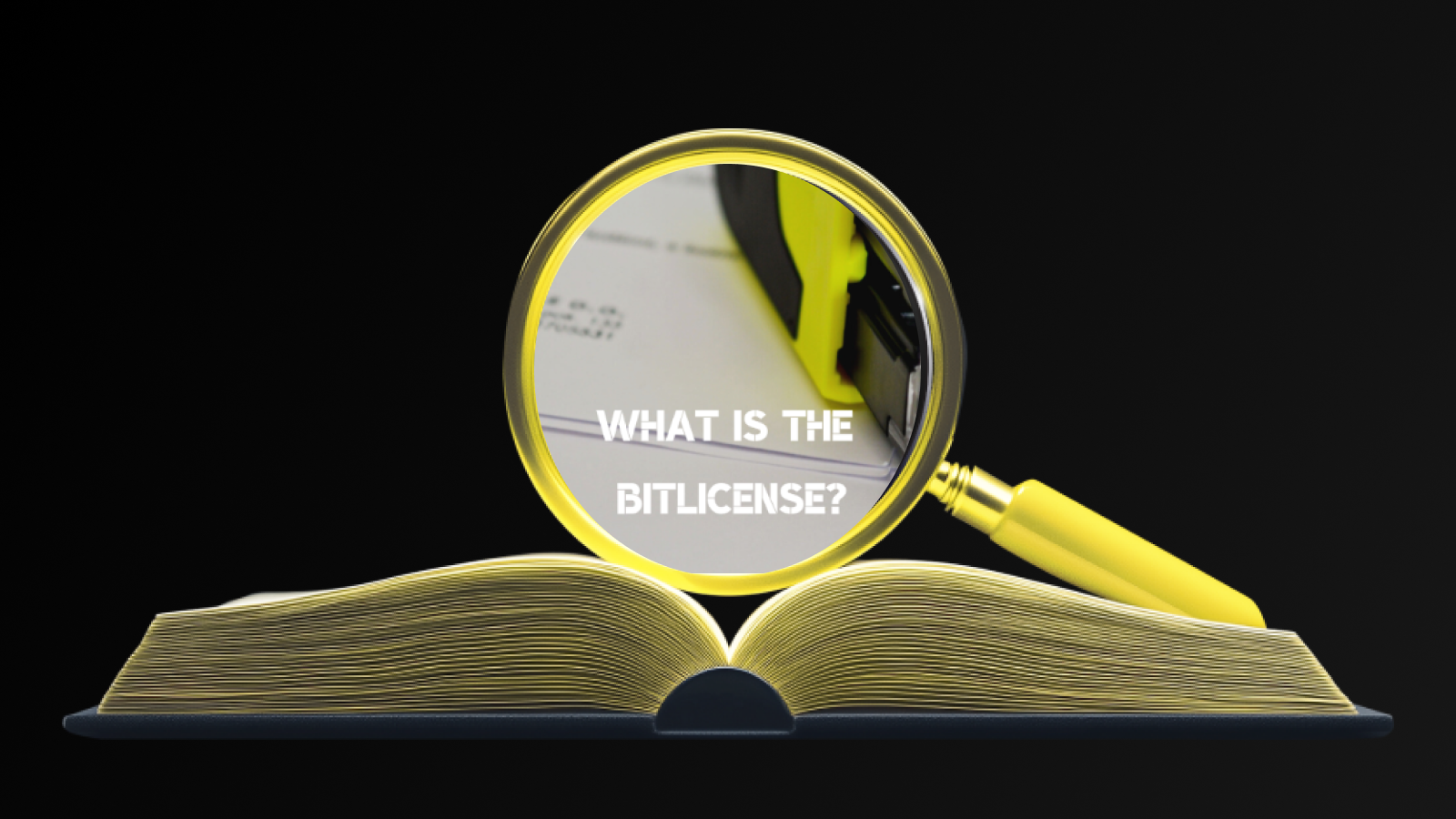Introduction
Explore the essentials of BitLicense, its application process, benefits, criticisms, and global influence on cryptocurrency companies. Discover key insights for navigating this regulatory framework.
The BitLicense is a regulatory framework established by the New York State Department of Financial Services (NYDFS) specifically for businesses dealing with virtual currencies. Introduced in 2015, this licensing requirement aims to bring more transparency and security to a rapidly evolving industry. It applies not only to companies based in New York but also to those engaging with New York residents, making it a pivotal establishment in the world of cryptocurrency regulation.
By emphasizing compliance and consumer protection, the BitLicense seeks to create a more trustworthy environment for both businesses and users in the cryptocurrency market. This framework outlines specific requirements that companies must fulfill to operate legally, which helps mitigate risks associated with digital currency transactions. As cryptocurrency continues to gain traction globally, the implications of the BitLicense extend far beyond state lines.
In the following sections, we will delve deeper into the critical aspects of the BitLicense, including its key requirements, the application process, and the benefits it offers. Understanding this licensing system is vital for any business aiming to operate in the cryptocurrency space and for users looking to engage with compliant services.
Key Requirements for BitLicense
To obtain a BitLicense, companies must adhere to stringent requirements set forth by the New York State Department of Financial Services (NYDFS). These requirements ensure that businesses operating in the cryptocurrency sector are compliant with financial regulations and consumer protection laws.
First and foremost, applicants must demonstrate that they have a comprehensive anti-money laundering (AML) program in place, as well as policies to combat fraud and safeguard customer information. This includes detailed procedures for monitoring transactions and reporting suspicious activities.
Additionally, applicants must provide a thorough business plan that outlines their operations, including the types of virtual currencies they will deal with, and their risk management strategies. This allows the NYDFS to assess the viability and security of the business within the evolving financial landscape.
Moreover, the financial standing of the company is scrutinized through a detailed examination of its capital reserves and insurance coverage. This ensures that the company can meet its financial obligations and protect customer funds in case of unforeseen incidents.
Applicants must furnish proof of the qualifications and backgrounds of their executive officers and directors, to ensure that those in leadership positions are fit to operate under the regulatory framework. Hitting all these requirements is crucial for a successful application for a BitLicense.
The BitLicense Application Process
The BitLicense application process can be complex and thorough, designed to ensure that companies adhere to strict regulatory standards. First and foremost, organizations must prepare and submit a comprehensive application to the New York State Department of Financial Services (NYDFS). This application requires detailed information about the business, its owners, and its financial condition. Additionally, companies must describe their business model, the types of cryptocurrency-related services they intend to offer, and their anti-money laundering (AML) policies.
Once the application is submitted, the NYDFS conducts a rigorous review process. This involves background checks on all key personnel, an analysis of the company’s financial stability, and a thorough evaluation of its compliance programs. The NYDFS may also request additional information or clarifications during the review period. Companies must be prepared for a transparent dialogue and be open to providing any necessary documentation.
If the application meets all requirements and passes the scrutiny of the NYDFS, the company is granted the BitLicense and can begin its operations legally in New York. However, obtaining this license is not the end of the process. Licensees are subject to ongoing compliance obligations and must regularly report to the NYDFS to demonstrate their adherence to the regulatory framework.
Companies seeking the BitLicense must invest significant time and resources into the application process. By doing so, they ensure they are equipped to operate within the legal complexities of the cryptocurrency landscape while fostering trust with users and regulatory bodies alike.
Benefits of BitLicense
The BitLicense framework offers numerous advantages for businesses operating within the cryptocurrency sector. One of the primary benefits is the enhanced credibility it provides. Obtaining a BitLicense distinguishes a company from its competitors, signaling to customers and partners that the business adheres to rigorous regulatory standards.
Additionally, the BitLicense fosters a safer environment for consumers. By ensuring that licensed entities follow essential operational protocols and security measures, it helps mitigate risks associated with fraud and misuse of digital assets. This heightened level of protection enhances consumer trust and confidence, which can ultimately lead to increased user adoption.
Furthermore, the BitLicense can open doors to new business opportunities. With regulatory compliance in place, companies can explore partnerships with traditional financial institutions, which may have been hesitant to engage with non-compliant entities. This paves the way for innovative collaborations that can enrich the overall ecosystem.
As the cryptocurrency market matures, having a BitLicense can position a company favorably for future market changes and regulations. Being compliant with present laws equips businesses to adapt more swiftly as the regulatory landscape evolves, ensuring sustained growth and viability.
Criticisms of BitLicense
The BitLicense framework has faced considerable backlash since its inception, primarily due to its perceived strictness and complexity. Critics argue that the regulatory burden imposed by the BitLicense can stifle innovation in the rapidly evolving cryptocurrency market. Startups, in particular, may find it difficult to meet the extensive compliance requirements, potentially leading to fewer new entrants in the industry.
Moreover, concerns have been raised regarding the effectiveness of the BitLicense in actually protecting consumers. Critics suggest that while the licensing process aims to enhance consumer protection, it may inadvertently drive legitimate businesses underground, where they evade regulation entirely. This could leave consumers more exposed to risk rather than better protected.
Another point of contention is the considerable cost associated with obtaining and maintaining a BitLicense. The financial burden may disproportionately affect smaller companies, creating an uneven playing field that favors larger, well-established firms capable of absorbing these costs.
The ambiguity surrounding certain regulatory expectations can lead to confusion and misinterpretation. This uncertainty may discourage potential investors and companies from engaging with the New York cryptocurrency market, slowing its growth and adoption rate.
Companies That Have Obtained BitLicense
Numerous companies have successfully navigated the stringent requirements to obtain a BitLicense, which has solidified their presence in the regulated cryptocurrency market in New York. Among these companies are prominent names like Coinbase, known for its user-friendly platform that enables individuals to buy and sell cryptocurrencies easily.
Another notable company is Gemini, founded by the Winklevoss twins, which has positioned itself as a leader in security and compliance within the digital asset space. These companies have not only complied with the regulations set forth by the New York State Department of Financial Services (NYDFS) but have also set a standard for operational integrity.
Additionally, Ripple is among the list of firms that have acquired a BitLicense. This demonstrates the diverse spectrum of businesses embracing regulatory frameworks, ranging from exchanges to blockchain technology providers.
Having a BitLicense not only allows these companies to operate legally in New York but also instills a sense of trust amongst consumers and investors, further catalyzing the growth of the cryptocurrency industry.
Global Influence of BitLicense
The introduction of BitLicense by the New York State Department of Financial Services (NYDFS) has had significant implications not only within the United States but also globally. As one of the first regulatory frameworks specifically designed for virtual currencies, it has set a precedent that other jurisdictions are closely monitoring and evaluating.
Countries like Japan and the United Kingdom have considered similar regulations in light of BitLicense, recognizing the necessity to establish guidelines that protect consumers and maintain financial integrity within their borders. This trend illustrates how the framework has influenced regulatory discussions worldwide, pushing governments to develop their respective strategies to ensure compliance and consumer protection in the evolving digital currency space.
Moreover, the framework of BitLicense extends beyond mere regulation. It has elevated the dialogue surrounding digital currencies, encouraging discussions about the legitimacy and acceptability of cryptocurrency usage among traditional financial institutions. As more companies seek to enter the digital asset market, the influence of BitLicense is becoming increasingly vital in promoting standardized practices and accountability.
The impact of BitLicense transcends state boundaries, emphasizing the importance of comprehensive regulation in fostering secure and reliable cryptocurrency environments globally. As more regions look toward the BitLicense model, it is likely that its principles will shape the regulatory landscape of the virtual currency market for years to come.
Conclusion
The BitLicense represents a significant step toward regulating the cryptocurrency and virtual currency landscape in New York. It establishes a framework designed to protect consumers, maintain financial stability, and ensure compliance with existing financial laws. While the BitLicense has faced its share of criticisms, many within the industry acknowledge the need for regulation to foster trust and legitimacy within the cryptocurrency space.
Companies that have successfully navigated the BitLicense application process demonstrate that it is possible to meet the stringent requirements laid out by the New York State Department of Financial Services. Their ability to operate legally in one of the most challenging regulatory environments has positioned them for opportunities both locally and globally.
As the cryptocurrency ecosystem continues to evolve, the influence of the BitLicense is likely to be felt beyond New York, potentially shaping policies in other jurisdictions. The trends set by this licensing model may serve as a blueprint for other regulators considering their own frameworks for cryptocurrency oversight.
While the BitLicense may come with its challenges, its role in defining a compliant and trustworthy environment for digital currency businesses is undeniable. Moving forward, stakeholders in the industry must engage with regulators to ensure that the evolving landscape can accommodate innovation without compromising on security and consumer protection.
Frequently Asked Questions
What is BitLicense?
BitLicense is a regulatory framework in New York established by the New York State Department of Financial Services (NYDFS) for businesses involved in virtual currency activities.
Why was BitLicense introduced?
BitLicense was introduced to provide consumer protection, combat financial crime, and ensure the integrity of the financial system amidst the growing popularity of cryptocurrencies.
Who needs a BitLicense?
Businesses that engage in activities such as virtual currency exchanges, transmitters, and custodians within New York must obtain a BitLicense.
What are the requirements for obtaining a BitLicense?
Obtaining a BitLicense requires companies to meet several conditions, including compliance with anti-money laundering (AML) regulations, cybersecurity measures, and financial stability.
What are the potential penalties for operating without a BitLicense?
Operating without a BitLicense can lead to severe penalties, including hefty fines, cease and desist orders, and potential criminal charges.
How does BitLicense impact innovation in the cryptocurrency space?
While BitLicense aims to enhance consumer protection, some argue that its stringent requirements may stifle innovation and hinder the growth of startups in the cryptocurrency industry.
Is BitLicense recognized outside of New York?
BitLicense is specific to New York State and is not recognized outside of it; however, its introduction has influenced other jurisdictions to consider similar regulatory frameworks for cryptocurrency businesses.
Disclaimer
The information provided in this article about BitLicense is for general informational purposes only and should not be considered as legal advice. While efforts have been made to ensure the accuracy and reliability of the information, the rapidly evolving nature of regulations surrounding digital currencies means that changes may occur without notice.
Readers are encouraged to consult with legal professionals or regulatory experts familiar with the specific laws applicable to their situation before making any decisions based on the contents of this article. The author and publisher disclaim any liability for any losses or damages arising from the use or reliance on this information.
Furthermore, the descriptions of BitLicense procedures and requirements may vary and are subject to interpretation. Always verify the latest guidelines and checks from the relevant regulatory authority to ensure compliance.
For those conducting business or engaging in activities that fall under BitLicense regulations, staying informed and proactive is critical in navigating the complexities of financial compliance in the digital space.





